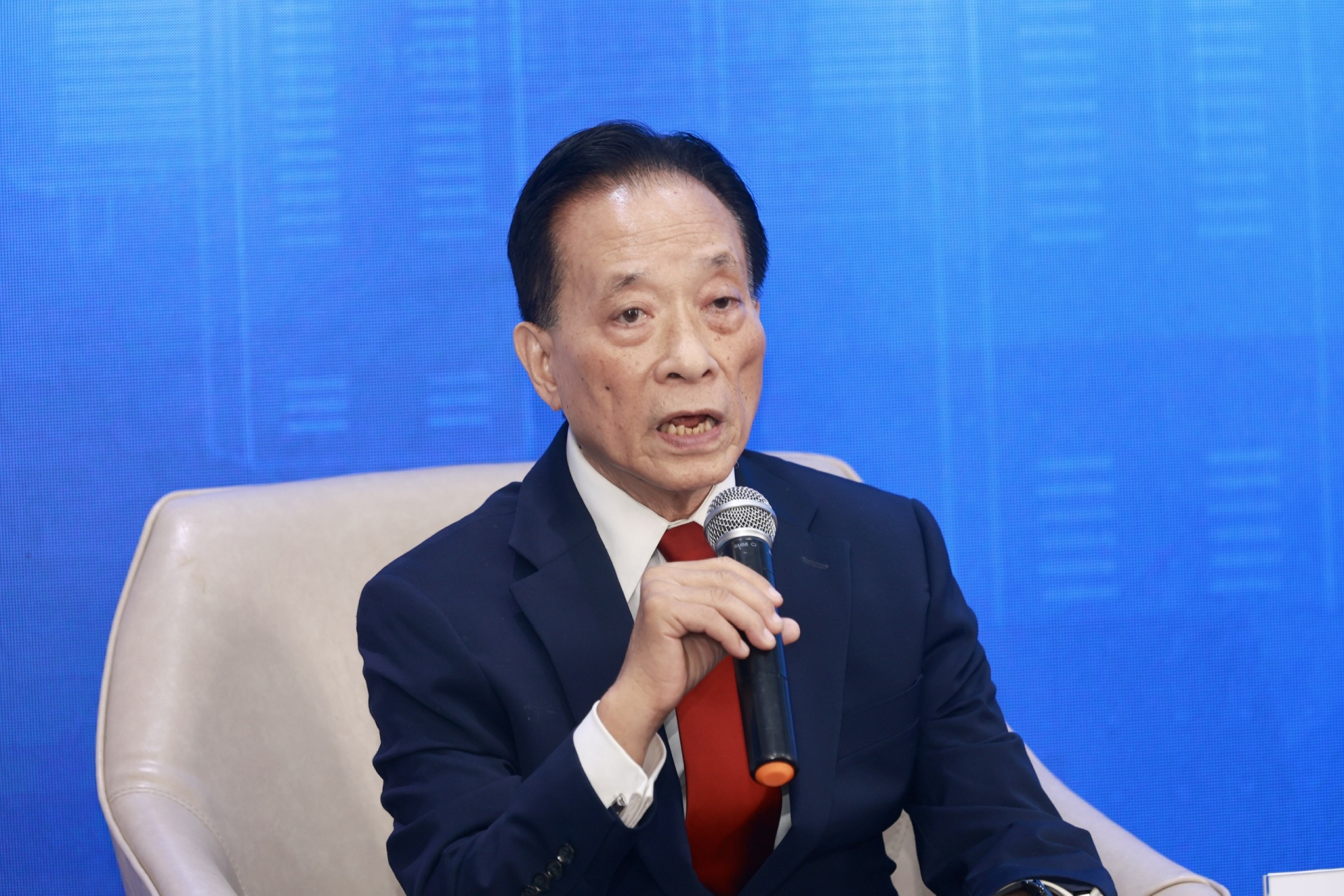 |
 |
| Giap Van Dai, founder and CEO of Nami Foundation |
Giap Van Dai, founder and CEO of Nami Foundation, said, "Blockchain goes beyond simple transactions – it reflects a reversible system where buyers and sellers can seamlessly switch roles. The transparency of blockchain fosters equality. While blockchain offers a degree of anonymity, it is not absolute – once a public/private key is generated, the corresponding asset can already be identified."
"The three goals that blockchain aims for are a more equitable, open, and trusted economy. Every government to be more equitable, open, and trusted," Dai said.
Blockchain is a distributed ledger system designed to store transactional data. It is considered decentralised because no single authority controls it. The concept originated from the idea of asset tokenisation, with discussions around digital cash dating back as early as 1995. The launch of Bitcoin in 2009 marked a breakthrough – introducing a shared, transparent ledger that anyone can verify. It is exactly this foundation of trust and widespread adoption that has enabled Bitcoin and blockchain technology to evolve and endure through cycles of crisis and scepticism.
"Along with Hong Kong and Singapore, Vietnam is seen as a country with a forward-looking vision in recognising blockchain opportunities. The implementation of Resolution No. 05/2025/NQ-CP on the pilot implementation of cryptoasset markets in Vietnam is both an interesting and unexpected move. The government's support creates favourable conditions for companies in the sector to grow," he added.
 |
| Nguyen Tri Hieu, director of the Institute for Global Financial and Real Estate Market Research |
In the same vein, Nguyen Tri Hieu, director of the Institute for Global Financial and Real Estate Market Research, said, "Resolution 05 marks a major milestone for Vietnam's financial market. In the past, cryptocurrencies were not officially recognised in the country. Under this new resolution, tokenised assets must be backed by real-world assets, and digital assets can now be traded on a tokenised asset market. This development represents a significant leap forward for Vietnam's financial system, which will give a boost to market growth."
"That said, Resolution 05 will initially operate within a controlled sandbox framework for the next five years," Hieu said. "If the Ministry of Finance approves certain issues of tokenised or digital assets, these assets may at first be sold only to foreign investors, not domestic ones. Therefore, the immediate impact may be limited. However, the resolution opens a crucial gateway for Vietnam's financial market, paving the way for the formation of a regulated tokenised asset ecosystem."
 |
| Trinh Ha, market analyst at Exness Investment Bank |
Trinh Ha, market analyst at Exness Investment Bank, said, "Capital inflows from hedge funds and major institutions continue to pour into digital assets, providing strong momentum for growth. Despite the potential, digital assets remain high-risk instruments, as they are highly volatile and closely tied to macroeconomic conditions."
Commenting on the growth outlook, Ha said, "To achieve the GDP growth target of 10 per cent, Vietnam may have to inject a large amount of money, leading to 20 per cent credit growth in 2026, doubling the pace of economic growth. This poses the risk of money flowing into secondary markets such as equities and gold, potentially fuelling bubbles."
"Indeed, Vietnam's credit and public debt structure currently resembles China's in 2015-2016, characterised by a large real estate credit share, elevated public debt, and high total debt-to-GDP. Structural reforms to mitigate these risks are urgently needed," he added.
 |
| Nghiem Minh Hoang, fintech expert at the Vietnam Blockchain and Digital Asset Association |
Nghiem Minh Hoang, fintech expert at the Vietnam Blockchain and Digital Asset Association, said, "Through Resolution 05, the government aims to establish a regulatory framework for cryptoassets. Thus, the government can manage the market effectively, given that total trading volume exceeds $200 billion. The move will attract additional foreign investment through the issuance of tokens to foreign investors. Cryptoassets can also serve as a channel for connecting with international capital markets."
"Vietnam has one of the world's largest crypto adoption rates. It is estimated that approximately 17 million Vietnamese own digital assets, representing around 15 per cent of the population. With macroeconomic stability, strong government determination, and regulatory reform, Vietnam is considered a rising star in the financial sector, capable of attracting international capital," Hoang added.
 |
| Vu Duy Khanh, director of the analysis centre at SmartInvest Securities JSC |
Vu Duy Khanh, director of the analysis centre at SmartInvest Securities JSC, shared, "The world is at a turning point in the international trading system. New trade agreements no longer rely on free market regulation due to concerns that China will dominate certain industries. Changes in free trade agreements could pose major challenges, given that Vietnam relies heavily on foreign direct investment (FDI) and exports."
Regarding different asset classes, Khanh predicted, "The real estate market may continue growing through 2026. However, the market will experience great risks in 2027 due to the high real estate credit ratio. Meanwhile, gold is expected to remain an attractive investment channel as the money supply continues to expand. Gold is increasingly becoming the ultimate asset that the money supply flows into, replacing bonds."
 |
| Le Duong, partner at PTN Legal |
Le Duong, partner at PTN Legal, said, “The government is completing new legal regulations in line with international judicial systems and the laws of other countries. There are specific rules designed to support businesses across sectors.”
For example, in real estate, the elimination of construction permits has been a boost for project development. Supportive policies have also been issued in the securities sector. For the emerging fields, such as cryptocurrency, there are new legal frameworks like Decree 05 that provide guidance on cryptoassets.
"With policy, market, and institutional stability, all core production and key investment sectors are set to grow. As these fundamentals strengthen, investor appetite for emerging sectors, such as cryptocurrency, is also likely to rise." Duong stated.




















































